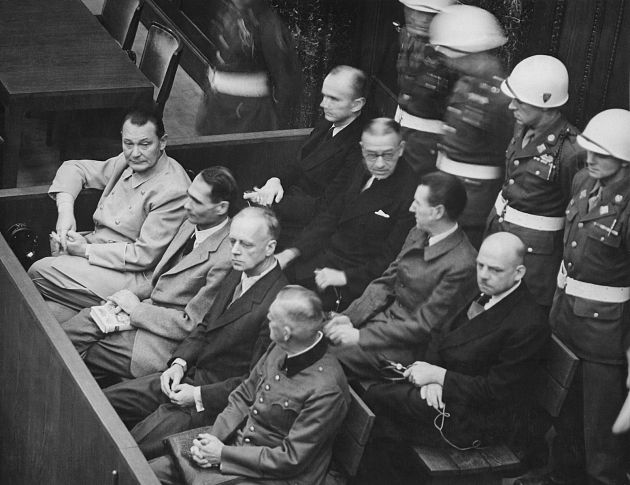Early last year, SOFREP began receiving inquiries from investigative journalists regarding war crimes in Afghanistan. I’m not talking about dumping a few extra rounds into some bad guys – it’s much worse, and more in line with what was described above. You can thump your chest and say that “war is hell” all you want, but honestly ask yourself if you would support the murder of innocent women and children in a war zone, wide-spread theft, illicit drug rings, and killing videos.
Why have we left this alone for so long? SOFREP has largely chosen to leave issues of unit discipline and criminal actions alone. It’s a complicated situation, and admittedly hard to approach without bias. Our decision, up to this point, has been to let the leadership of US Special Operations Command (US SOCOM) do their job.
Nobody wants to write, hear, or talk about war crimes, however, according to my contacts in the mainstream media, the top is about to blow. I’m not talking about urinating on dead bodies or prisoner abuse, this stuff is much worse and will not garner public support. Jack’s last article about UBL sent silent shock waves throughout the Special Operations community, and it only scratched the surface.
The problem the community faces now is that the dirty laundry never got taken out, and because of this, it’s created a stench that’s attracted a swarm of investigative journalists more interested in making a name for themselves than doing what’s right by seeing these crimes exposed.
It’s my belief that most SOF leadership has no idea what’s been happening behind the scenes with regards to war crimes. This is a shame. However, “not knowing” does not excuse them, and they know this.
An important lesson I learned growing up, a lesson reinforced in the SEAL community, is candor. If there’s an elephant in the room, introduce it and get it over with.
This series will attempt to address the complicated issues of war. It will engage the reader in an intelligent discussion with regards to how modern war is waged, and debate the ethics and morality of fighting in war.
There are those in the Special Operations community, active and veteran, who will be upset that SOFREP would dare to have this conversation in a public forum. To them I’ll say what we’ve said before when criticized for our Benghazi reporting: we believe that an informed public is necessary in a functioning democracy, the same democracy that we fought to uphold during the time spent serving our country.
Fact or Fiction?
The US SOF (Special Operations Forces) assault team crept up to the objective. They were deep into an area that was largely controlled by the Taliban. Their objective was to kill or capture the regional Taliban commander. They spread out and swiftly entered the village, only hours before the sun would creep up over the steep mountain range.
Phifttt…phiftt…phiftt… The sound of suppressors and subsonic ammunition could barely be heard in the night. In less then ten minutes it was all over. Just after the “all secure” call came over the squad radio, a Ranger on perimeter security looked over his shoulder to see a small child weeping over his father’s body.
What happened next, and the fact that it went un-reported, would haunt the Ranger long after his separation from service. It would keep him up late with night sweats for years to come. During the Ranger’s glance back, an assault force member slung his HK 416 assault rifle over his shoulder, drew his USP .45, and shot the five-year old boy once in the head, at point blank range. Even stranger, the assaulter pulled out a camera and snapped a quick momento of the dead child.
Already have an account? Sign In
Two ways to continue to read this article.
Subscribe
$1.99
every 4 weeks
- Unlimited access to all articles
- Support independent journalism
- Ad-free reading experience
Subscribe Now
Recurring Monthly. Cancel Anytime.
Ten minutes later, the 47s came for extract, and they left as quickly as they came…
Answer: Fiction, but, sadly, based on true events. Those who would argue this fall into the category of being clueless, in denial, or worse, they’re guilty of collusion.
True Story
We had just captured a handful of likely Taliban in Afghanistan, on the northern border of Pakistan, and a few of the guys in my SEAL platoon, including myself, were about to kill them all.
After several days operating off the grid and a few close calls, we welcomed the idea of not having the inconvenience of dealing with the complication of keeping, and handling prisoners. It was a tense few seconds, and finally broken by a voice of reason. “We can’t do this guys,” said one of our senior officers, and he was right. It’s a moment in time, on the razor’s edge that I will never forget.
Environment of War
Those who have seen it up close know best what this means. America’s citizens have largely been supportive of the US Warfighter since 9-11-2001. I’ll be the first to admit that it bothers me that so many people are quick to say, “Kill them all, and let Allah sort them out.” This is uneducated rhetoric, and offensive to anyone who actually served in a war zone and had to take someone’s life.
It’s an unfortunate reality that we still live in a world that requires good people to be defended, often by force, from bad people. Sometimes this escalates to war.
And what about the rules of war? Silly concept, or needed? War, like terrorism, comes with many definitions – most can’t be agreed upon.
I personally find myself conflicted by having rules in war. I do, however, identify with the enforcement of some crimes outlined under the Geneva Convention that are described as “grave breaches,” especially that described as the willful killing, torture or inhumane treatment, including biological experiments on human beings.
It can be argued that America has broken most of the rules outlined in the Geneva Convention since September 11, 2001. With the Guantanamo Bay detention camp, we’ve also successfully circumvented the very Constitution I and others who’ve served, swore an oath to support and defend against all enemies, foreign, and domestic. Think about it. And if this is the case, why have rules of war, and why have a Constitution?
Rules and laws are put in place to define right and wrong, and to establish ethics in society. No society or system of government is perfect, however, the American Constitution and system of government is one of the greatest codes of ethics ever created, in my opinion. Will we uphold the Constitution as a society, or see it eroded in front of our faces?
At what point do good men turn bad by committing monstrous acts unbecoming of the very values they swore to uphold?
One of the reasons prison largely fails to rehabilitate people is that, given enough time, human beings adapt to their surrounding environments, and prison is a nasty environment. Once prisoners become used to the prison environment for so long, it’s hard for them to adapt back to normal society, as normal to them is much different than normal to us. This is why prisoners who have served long sentences, and are eventually set free, long to go back to their prison environment. It’s more comfortable for them.
And what about prolonged warfare and the environment it creates for the American warfighter? What is their “normal” now? Lately, I’ve thought about this often, and as depicted in the movie Hurt Locker, it explains why most of my active duty Spec Ops friends prefer deploying overseas to being at home these days.
To be continued…
(Featured Image Courtesy: Wikipedia)










COMMENTS